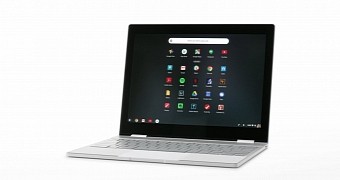The fight between Google’s Chromebooks and Microsoft’s Windows 10 in the education sector has just recorded a new episode that puts the search giant in the leading spot.
New Zealand has decided to go all-in on Google instead of Microsoft’s Windows 10, with schools in the country now allowed to claim Ministry-funded Chrome Education licenses that can be used for managing new and existing unmanaged Chromebooks.
What this means is that New Zealand schools see Chromebooks as a much better alternative to Windows 10, and after using Google’s platform for several years already, this is just the natural step to do.
“This is fantastic news for the Manaiakalani Schools,” says Mrs. Dorothy Burt, Education Program Lead in the Manaiakalani Innovation team, “we have been using Chromebooks since they first became available to New Zealand schools in 2013 and have relied on the devices having the Chrome Education license to ensure the focus remains on learning and teaching.”
Google vs. Microsoft in education
The Chrome Education license comes with several benefits for educators using them. Technically, it makes it possible to update the entire fleet of Chromebooks without even touching them, and it’s all possible thanks to a cloud-based management console.
In the last couple of years, the battle in the education market has become fiercer, with Microsoft itself also investing aggressively in products aimed at these customers.
Windows 10 S, Surface Laptop, and others are all aimed at educators, while device partners themselves joined the effort with PCs that are supposed to enhance certain tasks.
However, Chromebooks continue to be the preferred choice for many schools, mostly because of easy management and reduced costs.
“With this in place we have the confidence that our move to having young people learning on personal devices in a digital environment is well managed and safe. Expectations of whānau are easily applied across all devices. Teachers can spend their time where it counts—on children and their learning—rather than managing devices,” Mrs. Burt concluded.

 14 DAY TRIAL //
14 DAY TRIAL //